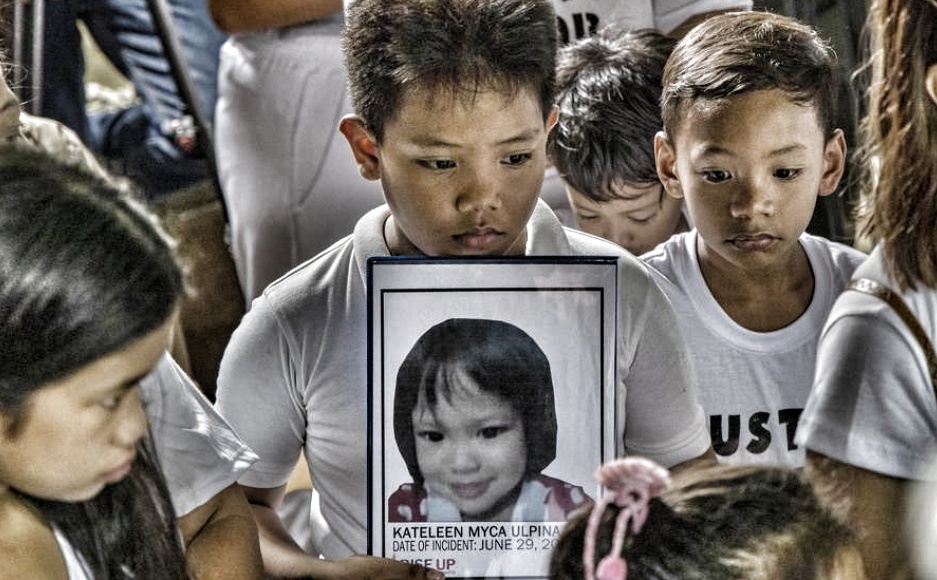
It sounds baffling at first. The most shrill “activists” of the Philippine Opposition gnash their teeth about it and the “rest of the world” — the cadre of journalists and “human rights” activists putting in their two-cents on the matter — lament these “killings”. But the numbers seem to say that Filipinos don’t give a shit about the “shit” that happens. The most recent Social Weather Stations (SWS) poll shows that Philippine President Rodrigo Duterte continues to enjoy the approval of his people.
It is quite evident, that the Opposition sees highlighting the “human toll” of Duterte’s “war on drugs” as a cornerstone of their effort to regain political power. This is a strategy they had been embracing since 2016 when they lost the Philippines to a Mindanaoan for the first time in history. It is also quite evident that this strategy is not working as the latest popularity numbers show and as this year’s mid-term elections revealed.
Recently, Senator Ronald “Bato” Dela Rosa copped flak when he dismissed the recent death of three-year-old Myca Ulpina in a police shootout with alleged drug personalities as routine “shit” that “happens”. Outrageous remarks, to say the least. Nonetheless, perhaps the real possibility that Filipinos are actually with Dela Rosa should be confronted with a critical mind.
For starters, the absolute tragedy of the violent death of a child should be separated from political agendas, specifically those wielded by people who aim to use such tragedies as fodder for their rhetoric. The key insight needed here is how ordinary Filipinos feel about Ulpina’s death. Is the sentiment strong enough to swing an election? More imporantly, in the context of an Opposition renowned for a habit of weaponising street parliamentarianism, is Ulpina’s death sufficient to move a critical mass of Filipinos to “take to the streets?”
These are important questions in a democracy where the popularity of people and ideas determine who and what wins.
Unfortunately, there is no scientific study backed by unbiased data to answer these strategically-important questions. As far as we can tell, the only information used to interpret how important Ulpina’s death is to political careers comes from biased sources — the sloganeering of Opposition “activists”, the “reports” of liberal Western media, and the shrill pronouncements of self-proclaimed Filipino “thought leaders”.
The stories spun by media may elicit strong emotion, as this “report” from the Sydney Morning Herald shows…
On Tuesday, scores of people joined a 3km funeral procession behind a white hearse, the back of which had a picture of the child wearing a shirt with the word “Pulis” (police).A priest and funeral workers carried the small casket up some steps and pushed it into a prepared space atop a concrete structure of hundreds of graves built in columns five-high.Wearing dark sunglasses, Ulpina’s mother fought to contain her anger as a woman police officer approached, shook her hand and offered condolences.“My daughter is not collateral damage,” she said, as she left the cemetery.Flavie Villanueva, a former drug user-turned-priest who delivered the mass, said he welcomed calls for a UN investigation, because Duterte and the police were acting “like gods”.
…but reveal very little about how much of an impact they make on the sentiments of the broader community of Filipino voters. There are clues, however, that are conveniently glossed-over: the continued success of the Duterte government in popularity polls, the recent catastrophic loss of the Opposition in this year’s elections, and the consistent failure of “activist” leaders to stir up massive street rallies. All these point to a confronting fact: most Filipinos don’t care.
What foreigners, perhaps, do not understand about the Philippines is that Filipinos are generally desensitised to poverty and even violent death. Indeed, one can even go far as far to assert that the most chi-chi of Opposition “activists” are hypocrites. These are, after all, people who routinely cocoon themselves in airconditioned late model cars and drive by children begging on Manila’s streets everyday. The vast majority of these children live and die on Manila’s streets with hardly a whimper of a slogan from the latte-sipping classes.
Perhaps the only reason Ulpina’s death attracted attention was because of Dela Rosa who very likely represents a hot button for an Opposition group still sore from a colossal election loss. Indeed, as theHerald points out; “[the] child’s death had generated little media attention until Friday, when Ronald dela Rosa, a senator and former top commander of Duterte’s drug war, described the child’s death as collateral damage, and said ‘shit happens’.”
Goes to show, the Opposition not only has a lot more work to do to cobble together a sound election-winning strategy and, more importantly, get smarter when it comes to reading the general public sentiment. The first step in that direction would be to extricate themselves from their little inbred soirees and listen more.
https://www.getrealphilippines.com/2019/07/why-foreigners-grieve-more-for-the-victims-of-the-philippines-war-on-drugs-than-filipinos-do/?fbclid=IwAR0KJkWu_rIakXNJvwB0kWALLT4FuuZU-fRGCj7EbL0XKx0KQRvrXr7xPVY
No comments:
Post a Comment